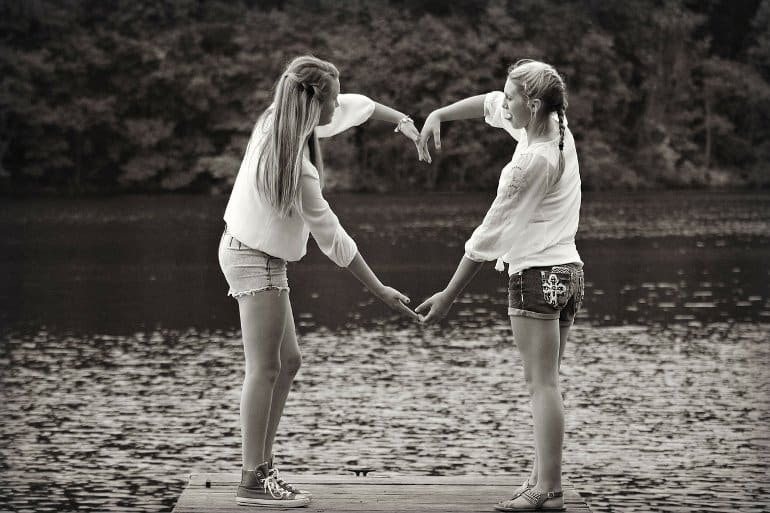Summary: A study of twins reveals a love of nature appears to be, at least in part, heritable.
Source: PLOS
A person’s appreciation of nature and their tendency to visit natural spaces are heritable characteristics, according to a large-scale study of UK twins led by Chia-chen Chang at the National University of Singapore, published February 3rd in the open-access journal PLOS Biology.
Researchers surveyed 1153 pairs of twins on the TwinsUK registry about how they experience nature, asking them to rate their familiarity with and desire to be in nature, and how frequently they visit natural spaces such as public parks and private gardens.
They found that identical (monozygotic) twins, who share almost 100% of their genes, were more similar to each other in their orientation towards nature and how frequently they visited nature compared to fraternal (dizygotic) twins, who share around 50% of their genetic material.
Heritability ranged from 46% for nature orientation to 34% for frequency of garden visits, suggesting a moderate influence of genetics over how people experience nature. However, environmental factors explained more than half of the differences between individuals.
People living in urban environments tended to have less nature experiences, due to for example limited access to gardens, highlighting the importance of availability in shaping nature-seeking behaviors. Heritability also declined with age, suggesting that genetics may become less influential as people age and experience a unique set of environmental conditions.

Spending time in natural spaces has been found to improve mental well-being, but different people experience and benefit from nature differently. This study provides the first evidence for a genetic component to both our predispositions towards nature and our tendency to visit natural spaces. Nature-oriented people may actively seek out nature even if it means traveling from their home, but diverse urban planning is needed to provide access to natural spaces – and the benefits they offer – for all, the authors say.
“Spending time in nature links to better health and wellbeing,” adds Chang. “A twin study shows that a person’s desire to be in nature and how often they experience it are influenced by both genes and personal experiences.”
Funding: We acknowledge research funds from the National Parks Board and the Ministry of National Development, Singapore to L.R.C. The funder had no role in study design, data collection and analysis, decision to publish, or preparation of the manuscript.
About this nature and genetics research news
Author: Claire Turner
Source: PLOS
Contact: Claire Turner – PLOS
Image: The image is in the public domain
Original Research: Open access.
“People’s desire to be in nature and how they experience it are partially heritable” by Chang C-c, et al. PLOS Biology
Abstract
People’s desire to be in nature and how they experience it are partially heritable
Nature experiences have been linked to mental and physical health. Despite the importance of understanding what determines individual variation in nature experience, the role of genes has been overlooked.
Here, using a twin design (TwinsUK, number of individuals = 2,306), we investigate the genetic and environmental contributions to a person’s nature orientation, opportunity (living in less urbanized areas), and different dimensions of nature experience (frequency and duration of public nature space visits and frequency and duration of garden visits).
We estimate moderate heritability of nature orientation (46%) and nature experiences (48% for frequency of public nature space visits, 34% for frequency of garden visits, and 38% for duration of garden visits) and show their genetic components partially overlap. We also find that the environmental influences on nature experiences are moderated by the level of urbanization of the home district.
Our study demonstrates genetic contributions to individuals’ nature experiences, opening a new dimension for the study of human–nature interactions.






